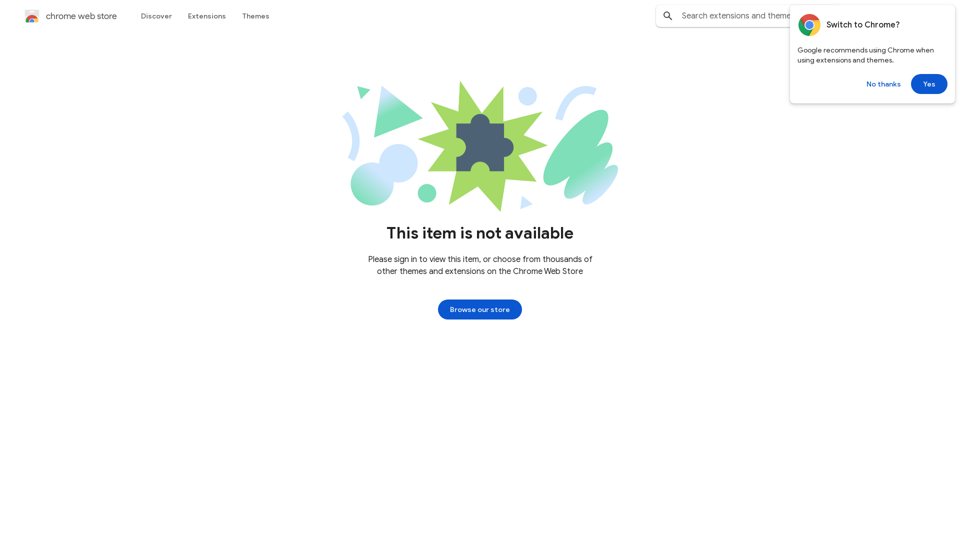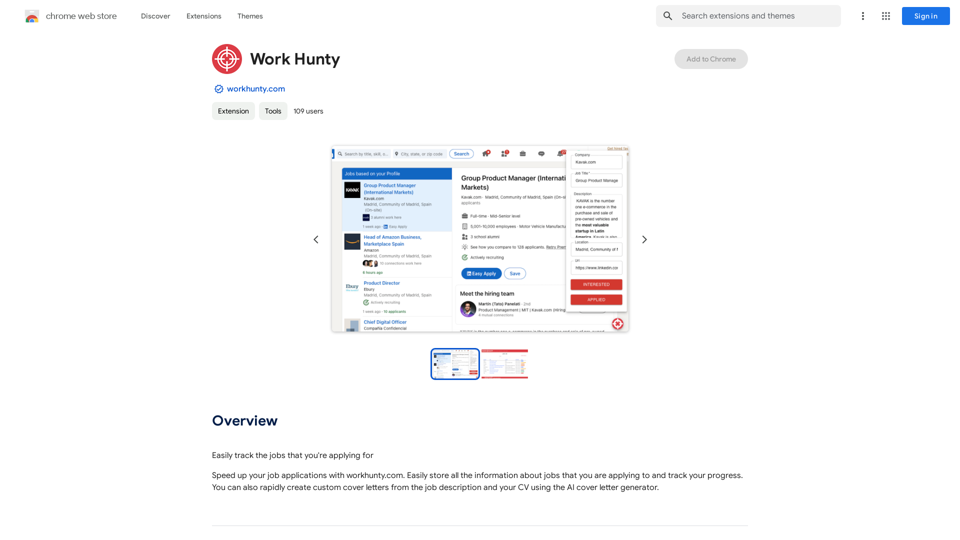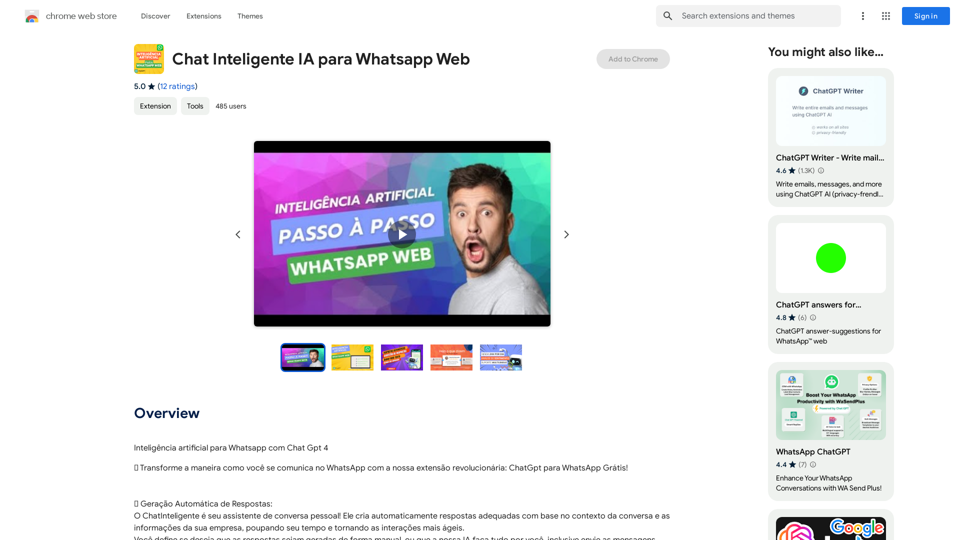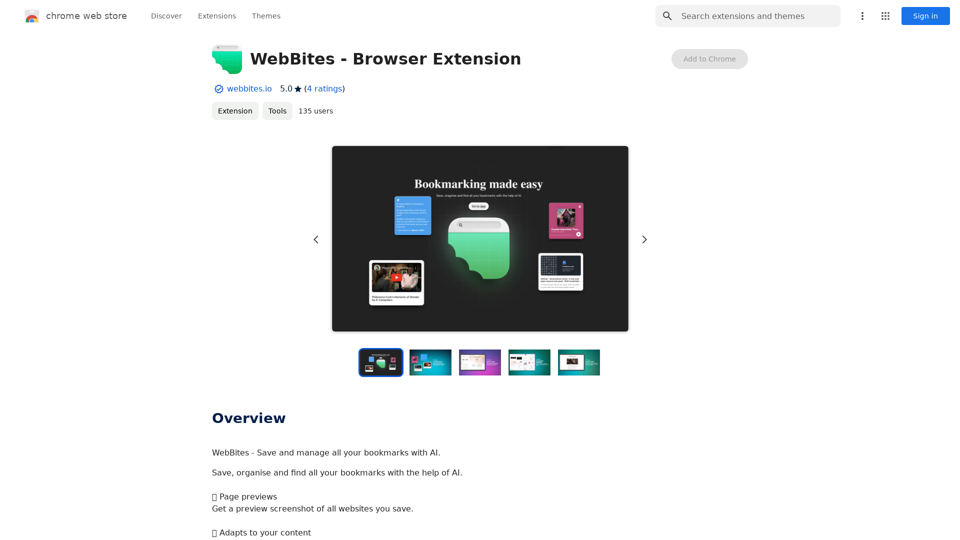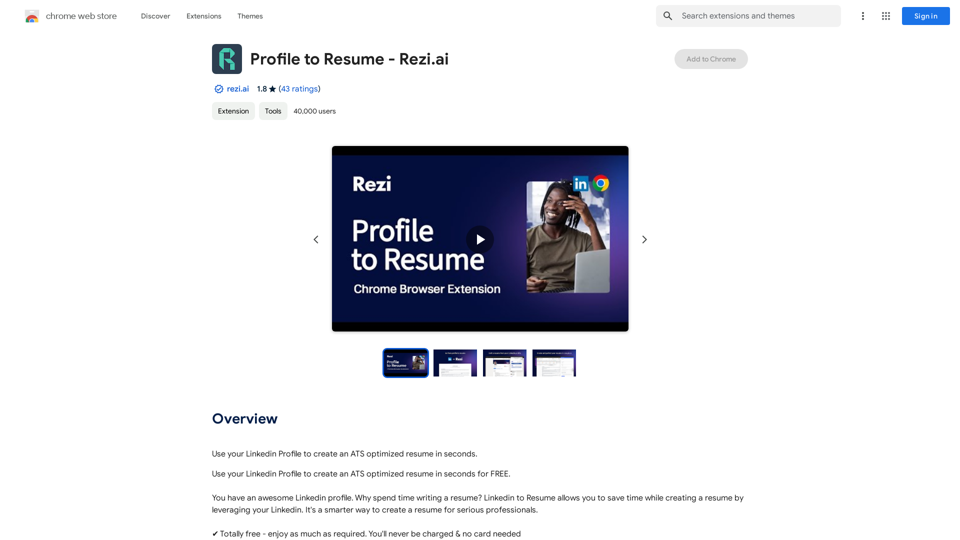AI Search is a Chrome extension that enhances your browsing experience by integrating a text-based AI into your start page's search bar. This innovative tool allows users to engage in instant dialogues and receive smart responses directly on their start page, making information retrieval more efficient and interactive.
SearchAISearchAI
Adds a search function to the start page that incorporates a text-based AI, allowing for instant dialogue and intelligent responses.
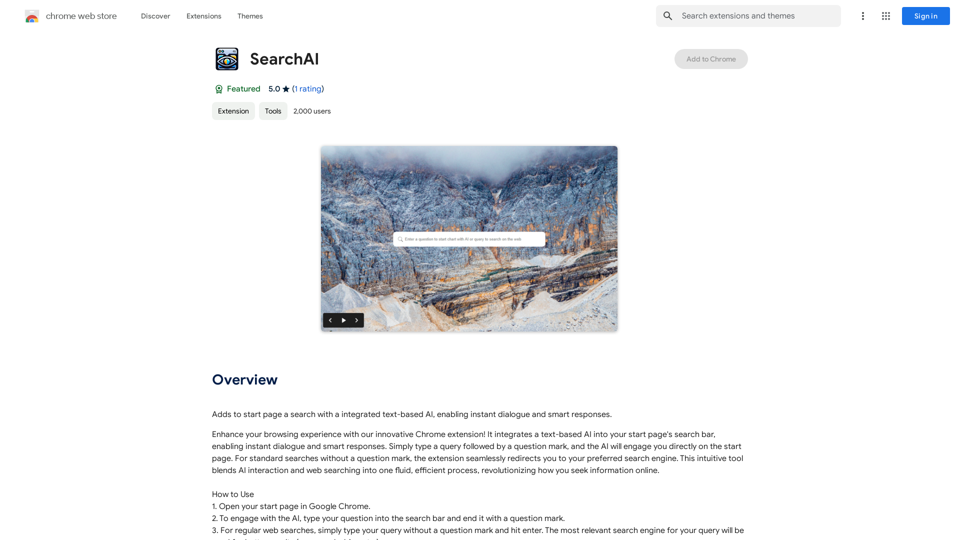
Introduction
Feature
Seamless Integration with Start Page
AI Search seamlessly integrates with your Chrome start page's search bar, providing a familiar and user-friendly interface for accessing AI-powered responses.
Instant Dialogue and Smart Responses
Users can engage in instant conversations with the AI, receiving intelligent and relevant answers to their queries without leaving the start page.
Multilingual Support
AI Search supports multiple languages, including English, Spanish, Russian, Hindi, and Arabic, making it accessible to a global user base.
Dual Functionality
The extension offers two modes of operation:
- AI-powered responses: End your query with a question mark
- Regular web searches: Type your query without a question mark
Free to Use
AI Search is completely free, with no subscription fees or usage limitations, making it accessible to all users.
Privacy-Focused
The extension prioritizes user privacy by not storing any conversation history, ensuring secure and confidential interactions.
Customization Options
Users can tailor AI Search to their preferences, allowing for a personalized browsing experience.
FAQ
How do I use AI Search?
To use AI Search:
- Open your start page in Google Chrome
- Type your question into the search bar
- End your query with a question mark for AI responses
- For regular web searches, type your query without a question mark and hit enter
Is AI Search available in multiple languages?
Yes, AI Search supports multiple languages, including English, Spanish, Russian, Hindi, and Arabic.
Is AI Search secure to use?
Yes, AI Search prioritizes user privacy and does not store any conversation history, ensuring a secure browsing experience.
Can I customize AI Search?
Yes, AI Search allows you to customize the extension to fit your needs and preferences, enhancing your personal browsing experience.
Related Websites
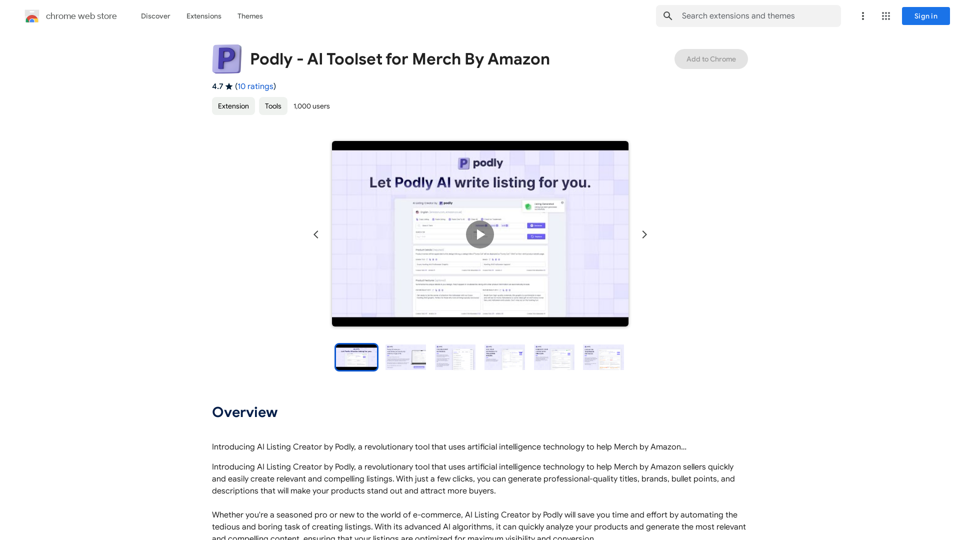
Introducing AI Listing Creator by Podly, a revolutionary tool that uses artificial intelligence technology to help Merch by Amazon sellers create high-quality product listings quickly and efficiently.
193.90 M

Pulse App AI Pulse App AI is an innovative artificial intelligence-powered healthcare platform that enables patients to take control of their health and wellness.
Pulse App AI Pulse App AI is an innovative artificial intelligence-powered healthcare platform that enables patients to take control of their health and wellness.The Power of Artificial Intelligence in Your Pocket
0
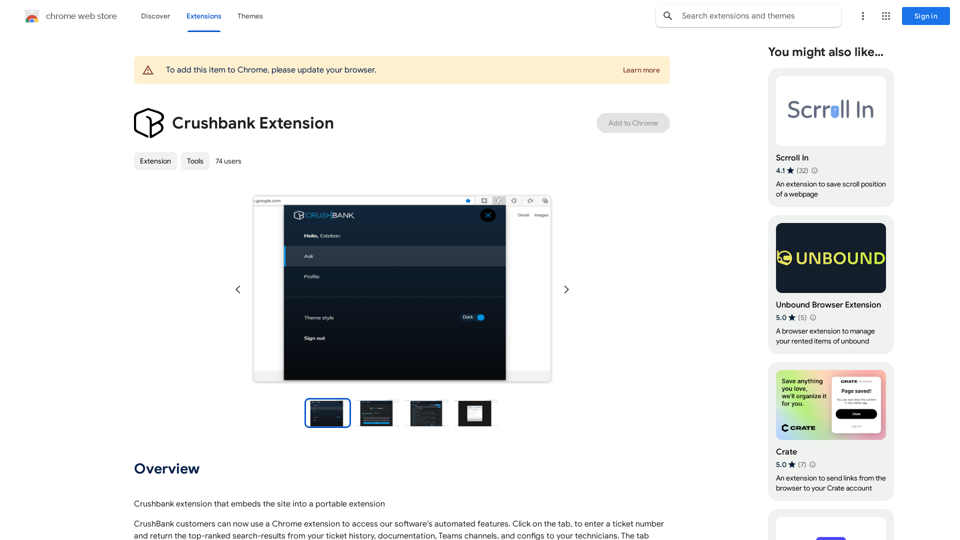
A browser extension for Crushbank that lets you use the site in a standalone, portable way.
193.90 M
